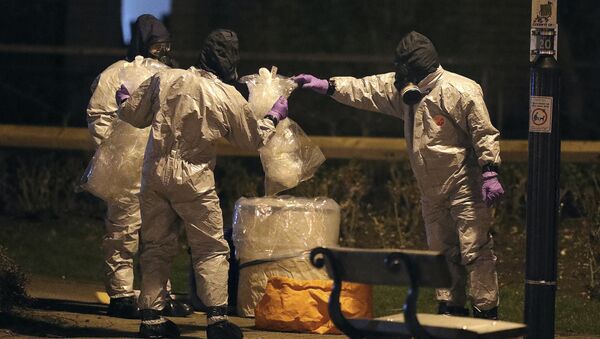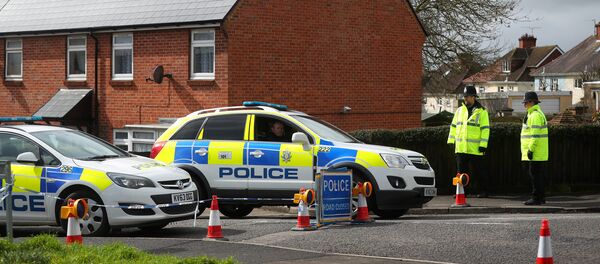Fugitive Russian lawyer Boris Kuznetsov has told The Guardian that he had handed a trove of files to US and UK authorities, which the newspaper claimed may ostensibly prove that the nerve agent used in the alleged poisoning of the Skripals could have been produced in Russia.
"The files may provide rare physical evidence about chemical weapons production at [the Russian town of] Shikhany," The Guardian reported.
Boris Kuznetsov, 72, who is accused by Russian prosecutors of divulging state secrets, received a political asylum in the United States in July 2007.
His statement came after the Times newspaper cited UK intelligence sources as saying that the toxic substance used in the alleged chemical attack on the Skripals in Britain's Salisbury could have been manufactured at the Shikhany facility in Russia's Saratov region.
READ MORE: Former FSB Chief Explains Why Skripal Couldn't Have Been Poisoned by 'Novichok'
For his part, Russian Foreign Minister Sergei Lavrov has stressed that London had reported that the Novichok* agent, allegedly used to poison the Skripals, was produced in Russia's Shikhany laboratory in an attempt to find a justification for its unfounded version of the Salisbury incident.
"This once again shows that they are trying frantically and convulsively every day to seek some new confirmation of their absolutely unprofitable position," Lavrov pointed out.
He underscored that "this position will remain unprotected until the UK agrees frankly and honestly, in accordance with the procedure of the Convention on the Prohibition of Chemical Weapons, to consult and [find a solution], putting all of their facts on the table, and not hold them in their pockets."
READ MORE: London's Sincerity in Quest for Truth of Skripal Case in Serious Doubt
Earlier this week, the head of the UK Defense Science and Technology Laboratory (DSTL) at Porton Down admitted that they could not definitively conclude that the nerve agent was Russian-made, as previously claimed by Prime Minister Theresa May and Foreign Secretary Boris Johnson of Britain.
Commenting on the issue, Russian Ambassador to the UK Alexander Yakovenko stated that the country had never developed the poisonous substance dubbed the Novichok and fully destroyed its chemical weapons' arsenal in 2017.
READ MORE: 'Strength is Growing Daily': What We Know So Far About Yulia Skripal's Awakening
On April 6, Christine Blanshard, Medical Director at Salisbury District Hospital, stated that Sergei Skripal "is responding well to treatment, improving rapidly and is no longer in a critical condition."
Blaming Russia for the alleged poisoning of the Skripals in the southern English town of Salisbury on March 4, London expelled 23 Russian diplomats, freezing bilateral contacts, as well as launching a government and royal family boycott of the upcoming FIFA World Cup in Russia. Many of the UK's allies, including the US, Australia and much of the EU, have followed suit.
____________________________________________________________
*a nerve agent commonly known as A-234





